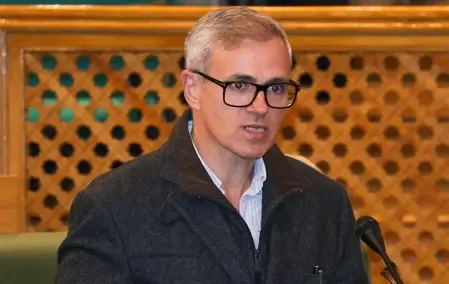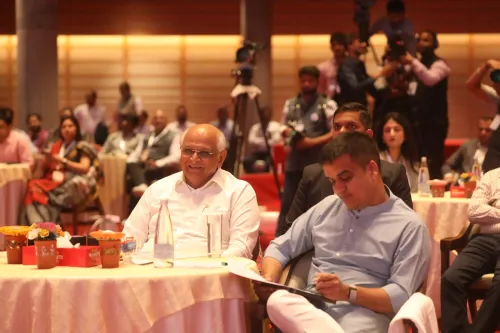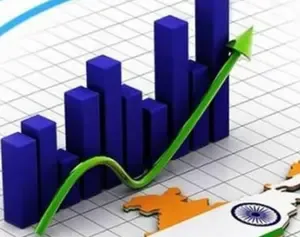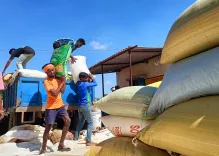How is the lawmakers' summit a crucial step toward strengthening democratic institutions?

Synopsis
Key Takeaways
- Strengthening democratic institutions
- Importance of anti-defection law
- Digital democracy initiatives
- Robotic surgery advancements
- Commitment to welfare schemes
Dharamsala, June 30 (NationPress) Lok Sabha Speaker Om Birla officially opened the annual conference of Zone II of the Commonwealth Parliamentary Association (CPA), India Region, at the scenic location of Dharamsala, Himachal Pradesh.
Chief Minister Sukhvinder Sukhu, during his welcoming address to the esteemed guests, emphasized that this two-day gathering represents a vital effort to bolster democratic institutions, refine legislative practices, encourage democratic conversation, and advance regional collaboration. The event attracted Speakers, Deputy Speakers, Chief Whips, and Deputy Chief Whips from regions including Delhi, Haryana, Punjab, and Jammu and Kashmir.
Additionally, special guests included the Speakers from legislative assemblies of Karnataka, Assam, Uttar Pradesh, Gujarat, Maharashtra, and Telangana.
The Chief Minister pointed out a historic event in Himachal Pradesh where an attempt was made to unseat a democratically elected government. Nonetheless, the Vidhan Sabha Speaker took a principled stance and disqualified the involved lawmakers.
Sukhvinder Sukhu highlighted the significance of the anti-defection law in preserving democracy, stating, “The state Vidhan Sabha has passed a Bill to halt the pensions of disqualified legislators, which is currently pending the Governor’s endorsement.” He asserted, “Himachal Pradesh has become a benchmark for other states, particularly regarding digital democracy.”
In 2014, the Vidhan Sabha became the first completely paperless Assembly in India, conducting all proceedings digitally. He also raised concerns regarding the conduction of by-elections only once annually under the proposed ‘One Nation, One Election’ model and urged the Lok Sabha Speaker to address this at a suitable forum.
Furthermore, he called for a distinct policy for hill states, considering the challenging topography, stating, “The nation cannot thrive if the states do not advance. Himachal has faced setbacks due to the implementation of GST (Goods and Services Tax), and a separate policy should be crafted for hill regions.”
The Chief Minister reiterated the government’s dedication to ‘Vyavastha Parivartan’ aimed at ensuring effective governance. Through the ‘Sarkar Gaon Ke Dwar’ initiative, ministers have visited over 1,000 panchayats to directly connect with residents and promptly address local issues. He noted significant advancements in health and education sectors.
He also mentioned the introduction of robotic surgery as a key step towards modernizing healthcare. The government is committed to a zero-tolerance policy against drug trafficking, having passed the Himachal Pradesh Organised Crime (Prevention and Control) Bill, 2025, which includes severe penalties such as the death penalty, life imprisonment, hefty fines, and asset confiscation from offenders.
Chief Minister Sukhu reaffirmed the state’s ongoing commitment to welfare programs and agricultural reforms.
More than 1.36 lakh government employees have now transitioned to the Old Pension Scheme (OPS), while nearly three lakh women benefit from Rs 1,500 monthly under the ‘Indira Gandhi Pyari Bahna Samman Nidhi Yojana’. The state has also introduced a minimum support price (MSP) for wheat, maize, and raw turmeric.
In an effort to promote border tourism, the government has opened the Shipki-La Pass, located at an altitude of 3,930 meters along the India-China border, for tourism activities. “This is anticipated to significantly enhance tourism in the tribal areas of Kinnaur district,” he noted.
The conference comprises a series of plenary sessions and discussions addressing critical legislative and constitutional matters. The dignitaries will engage on topics including the role of legislatures in managing state resources relative to development, provisions for disqualification on defection grounds, and the implementation of AI (artificial intelligence) in legislative processes.
Himachal Pradesh's Governor Pratap Shukla is scheduled to address the audience and deliver closing remarks on Tuesday.









